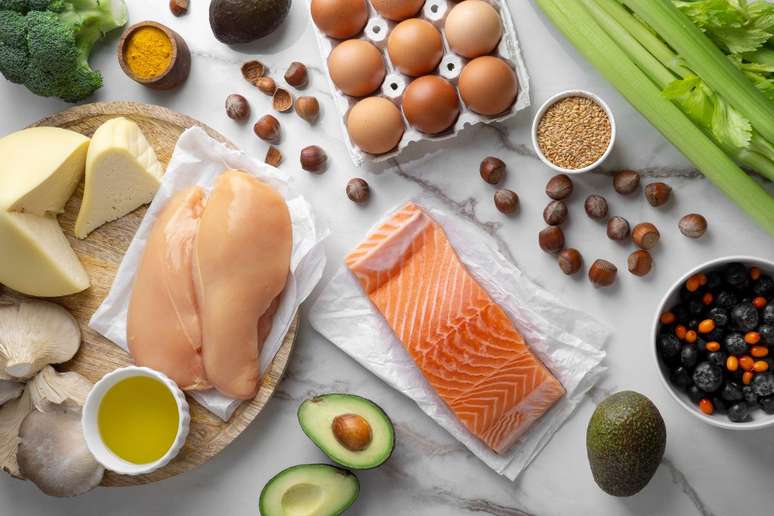Eggs, avocados, and fish are some of the foods featured on this list.
Do you feel like you’ve been forgotten? Do you have trouble remembering important appointments, where you kept things, and your professional and personal obligations? Here’s a tip: Make some changes to your diet. After all, there is a direct relationship between our eating habits and our cognitive function.
“It is worth mentioning that there are no scientific conclusions as to whether any isolated foods really help improve memory, attention or concentration. The main nutritional recommendation is to have a healthy eating pattern every day and maintain a balanced and varied diet “, clarifies the nutritionist Lucas de Albu.
According to the specialist, the brain needs nutrients for its formation and proper functioning, and each nutrient plays a different role within its structure. Understand:
- Carbohydrate: Carbohydrate deprivation can profoundly impair cognitive performance as it causes lack of energy, fatigue, restlessness and attention problems. The recommendation is to consume complete carbohydrates. Ideally, there should be a consumption of complex carbohydrates. “This macronutrient contributes to short-term memory, rapid information processing, and math skills,” says Lucas.
- Protein: It participates in the connections of neural networks, favoring the construction of new synapses, a fundamental process for communication between neurons.
- Trans fats: Care should be taken when consuming this nutrient, as it can have negative effects on brain performance, increasing the risk of attention deficit disorder, anxiety and depression.
- Omega 6 and 3: “Omega 6s can affect the ability of neurons to use glucose, helping concentration. Low levels of omega 3s can cause learning and motivation problems.”
- B complex vitamins: When our bodies have low levels of B-complex vitamins, we can experience difficulty concentrating, nervousness, tiredness and forgetfulness.
Below, Lucas lists some foods that may help improve memory:
Vegetables
Since they are rich in folic acid (vitamin B9), which takes care of gray matter and acts in the prevention of brain diseases such as dementia and Alzheimer’s, vegetables should be part of meals to always keep cognitive functions in order. Spinach, kale, arugula and broccoli are great choices.
Avocado
Avocado is a source of a number of compounds essential for neurons, including vitamins B6, B12, C and E, selenium, lutein and choline. In addition, it also contains monounsaturated fats, which protect the arteries, ensuring good blood flow to the brain.
“Some others that have similar functions are: olive oil, almonds, peanuts, chestnuts, sesame and canola,” says the nutritionist.
Fish
Due to the fact that they are rich in omega 3, a component that plays an important role in communication between nerve cells, fish are foods that can bring various benefits to mental health. Include, for example, salmon, tuna, sardines, herring and mackerel in your diet.
Egg
In addition to being an excellent source of protein, the egg can promote cognitive functions. That’s because your yolk, in particular, has choline, one of the B vitamins.
THE DIET OF THE “MIND”.
If your goal is to improve your memory, it may also be interesting to opt for the “Mind” diet. The great benefits of this diet are: development of fluidity in the connection between neurons, increased brain plasticity and decreased inflammation and oxidation.
“It involves eating at least three servings of whole grains (oats, rye, chickpeas, beans, peas, quinoa, among others), one serving of salad, and one serving of vegetables per day, along with a glass of wine. Snacks should often include oilseeds, i.e. the class of nuts, chestnuts and almonds. Fish is indicated at least once a week, while birds are welcome at least twice a week,” he points out.
As Lucas says, red meat, butter, margarine, cheese, sweets, fried foods, and fast foods should all be avoided. However, he stresses that you don’t need to completely delete these items from the list. “The ideal is to consume them infrequently. Talk to your doctor or nutritionist,” he concludes.
Source: Terra
Rose James is a Gossipify movie and series reviewer known for her in-depth analysis and unique perspective on the latest releases. With a background in film studies, she provides engaging and informative reviews, and keeps readers up to date with industry trends and emerging talents.







